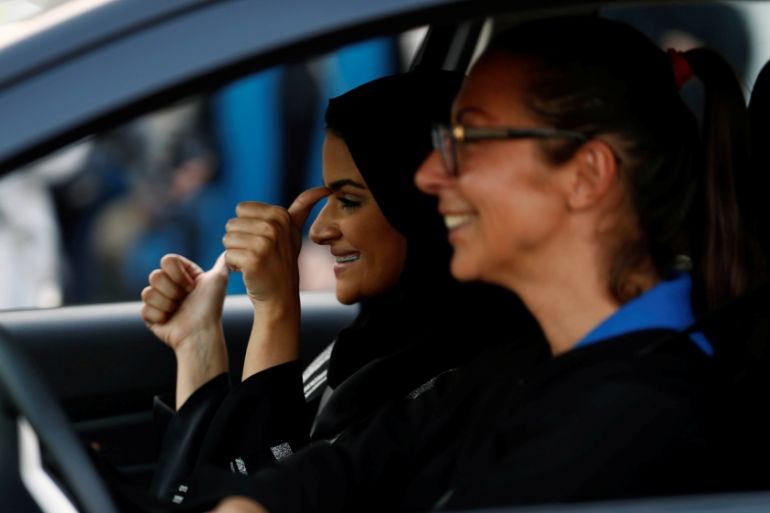Rights groups: Three more activists arrested in Saudi crackdown
The activists, mostly women who advocated for equal right, were smeared by state-linked media as traitors.

Saudi authorities have arrested at least three more women’s rights activists, widening a crackdown on campaigners a month before the kingdom lifts its ban on female drives, according to human rights groups.
The government on Saturday announced the arrest of seven people, identified by rights groups mostly as women who have long campaigned for the right to drive and to end the kingdom’s male guardianship system.
Keep reading
list of 4 itemsMSF suspends work in Haiti emergency centre after armed group kills patient
‘It gave me a purpose’: Surf therapy transforms lives in South Africa
British-Ghanaian boxer Joshua Buatsi: ‘I can’t be the only one benefitting’
On Tuesday, Amnesty International told news agencies that the number of people detained had risen to 10, including at least seven women. Human Rights Watch (HRW) confirmed that total.
“Despite international outcry and calls for the release of these activists, they still remain detained for their peaceful human rights work,” said Samah Hadid, Amnesty International’s Middle East director of campaigns.
“Saudi Arabian authorities cannot continue to publicly state they are dedicated to reform while treating women’s rights campaigners in this cruel way.”
There was no immediate comment by Saudi government officials.
Male guardianship
The Saudi government has previously said that those arrested had suspicious contacts with foreign entities and had offered financial support to “enemies overseas”. It added that it would identify others involved.
State-linked media have circulated the names of those imprisoned, publicly labelling them as traitors and “agents of embassies”.
The arrests took place just a few weeks before the driving ban is to be lifted on June 24, as promised by Saudi Crown Prince Mohammed bin Salman.
The 32-year-old prince had earlier in the year embarked on an extensive trip in Europe and the United States, painting a picture of a reformist Saudi Arabia that would relax some of its conservative laws as part of his Vision 2030 plan.
The country’s 32-year-old crown prince has widely been credited with being behind the kingdom’s lifting of the driving ban, part of a wider set of reforms being implemented for the Vision 2030 plan.
However, the country’s guardianship system remains in place, under which a male family member – usually the father, husband or brother – must grant permission for a woman’s study, travel and other activities.
Saudi activists claim that the guardianship issue is at the core of the fight for women’s rights.
According to HRW, nearly 30 activists and dissidents have been convicted in Saudi courts since 2011, many of whom received sentences of up to 15 years.